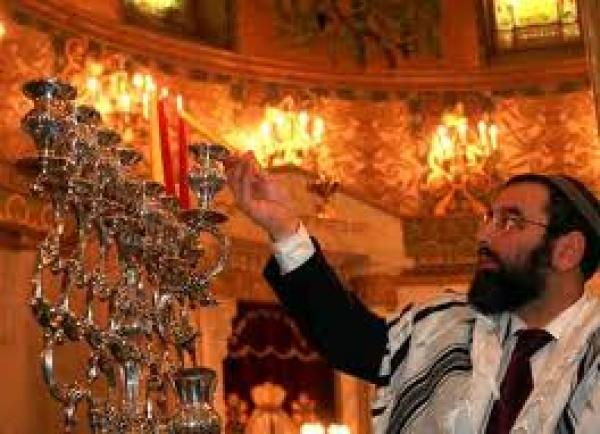Hanukkah, also known as the Festival of Lights and Feast of Dedication, is an eight-day Jewish holiday commemorating the rededication of the Holy Temple (the Second Temple) in Jerusalem at the time of the Maccabean Revolt against the Seleucid Empire of the 2nd century BCE. Hanukkah is observed for eight nights and days, starting on the 25th day of Kislev according to the Hebrew calendar, which may occur at any time from late November to late December in the Gregorian calendar. The festival is observed by the kindling of the lights of a unique candelabrum, the nine-branched Menorah or Hanukiah, one additional light on each night of the holiday, progressing to eight on the final night. The typical Menorah consists of eight branches with an additional raised branch. The extra light is called a shamash (Hebrew: שמש, "attendant") and is given a distinct location, usually above or below the rest. The purpose of the shamash is to have a light available for practical use, as using the Hanukkah lights themselves for purposes other than publicizing and meditating on the Hanukkah is forbidden. Hanukkah is celebrated with a series of rituals that are performed every day throughout the 8-day holiday, some are family-based and others communal. There are special additions to the daily prayer service, and a section is added to the blessing after meals. Hanukkah is not a "Sabbath-like" holiday, and there is no obligation to refrain from activities that are forbidden on the Sabbath, as specified in the Shulkhan Arukh. Adherents go to work as usual, but may leave early in order to be home to kindle the lights at nightfall. There is no religious reason for schools to be closed, although, in Israel, schools close from the second day for the whole week of Hanukkah. Many families exchange small gifts each night, such as books or games. Fried foods (such as latke potato pancakes, jelly doughnut sufganiyot) are eaten to commemorate the importance of oil during the celebration of Hanukkah.

